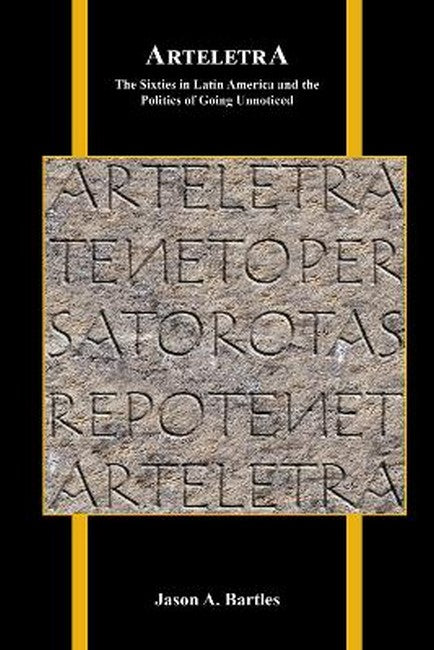Jason A. Bartles is an associate professor at West Chester University. He received his BA from Gettysburg College and his MA and PhD in Latin American Literatures and Cultures from the University of Maryland, College Park. His research explores the political, aesthetic, and ethical discourses that restore the possibilities for utopian thinking in the fiction and essays of twentieth and twenty-first century Latin American and Latinx writers. He has published articles in Aztl?in, Revista Iberoamericana, Variaciones Borges, Revista Hisp?inica Moderna, and Revista de Estudios Hisp?inicos. His fiction has appeared in Punchnel's, Here Comes Everyone, Boned, The Metaworker, and in the collection, My Utopia, at Cambridge Scholars Publishing.
Request Academic Copy
Please copy the ISBN for submitting review copy form
Description
Acknowledgments Introduction: ArteletrA al vesre PART ONE: The Itinerary of Errant Palindromes Chapter One: On Errant Palindromes Chapter Two: On Going Unnoticed Chapter Three: On Unattended Details PART TWO: The Politics of Going Unnoticed Chapter Four: A Double Negative in Cuba Chapter Five: An Errant Allegory in Argentina Chapter Six: A Nude Woman in Uruguay PART THREE: The Aesthetics of Writing in Plain Sight Chapter Seven: !Ay, epopeyA!; or, Filloy's Gauchos at the Origins Chapter Eight: !Sometamos o matemoS!; or, Somers's Mandrake Syndrome Chapter Nine: Supuso su puS; or, Casey's Wasted Narratives PART FOUR: The Ethics of Being Perceived Chapter Ten: Exposure through Dialogues Chapter Eleven: From Monodialogues to Pandemonium Chapter Twelve: Aiding the Adversary Conclusion: Re-ves la ArteletrA Notes Works Cited Index
Jason Bartles's ArteletrA offers a unique, innovative framework for reading an era in Latin American cultural history that seemed foreclosed to further literary or political readings. By providing a heuristic for reading against the currents of the cultural maps of the 1960s, Bartles not only helps us revisit this decade by attending to works and writers other than the ones we commonly associate with the period, but he also opens up a much-needed space today for alternative forms of utopian thinking. Creating a dialogue between works by Calvert Casey (Cuba, 1924-69), Juan Filloy (Argentina, 1894-2000), and Armonia Somers (Uruguay, 1914-94) proves the value of comparative analysis when examining a time in the production of Latin American literatures and politics that makes sense only transnationally. The politics of going unnoticed enacted by the various characters analyzed by Bartles compels us to see this crucial period in Latin American politics outside the logic of success and failure. Instead, ArteletrA unsettles and interrogates this binary, as it does those between visibility and invisibility, transparency and opacity, that structure the political up until today. Mariela Mendez, University of Richmond

